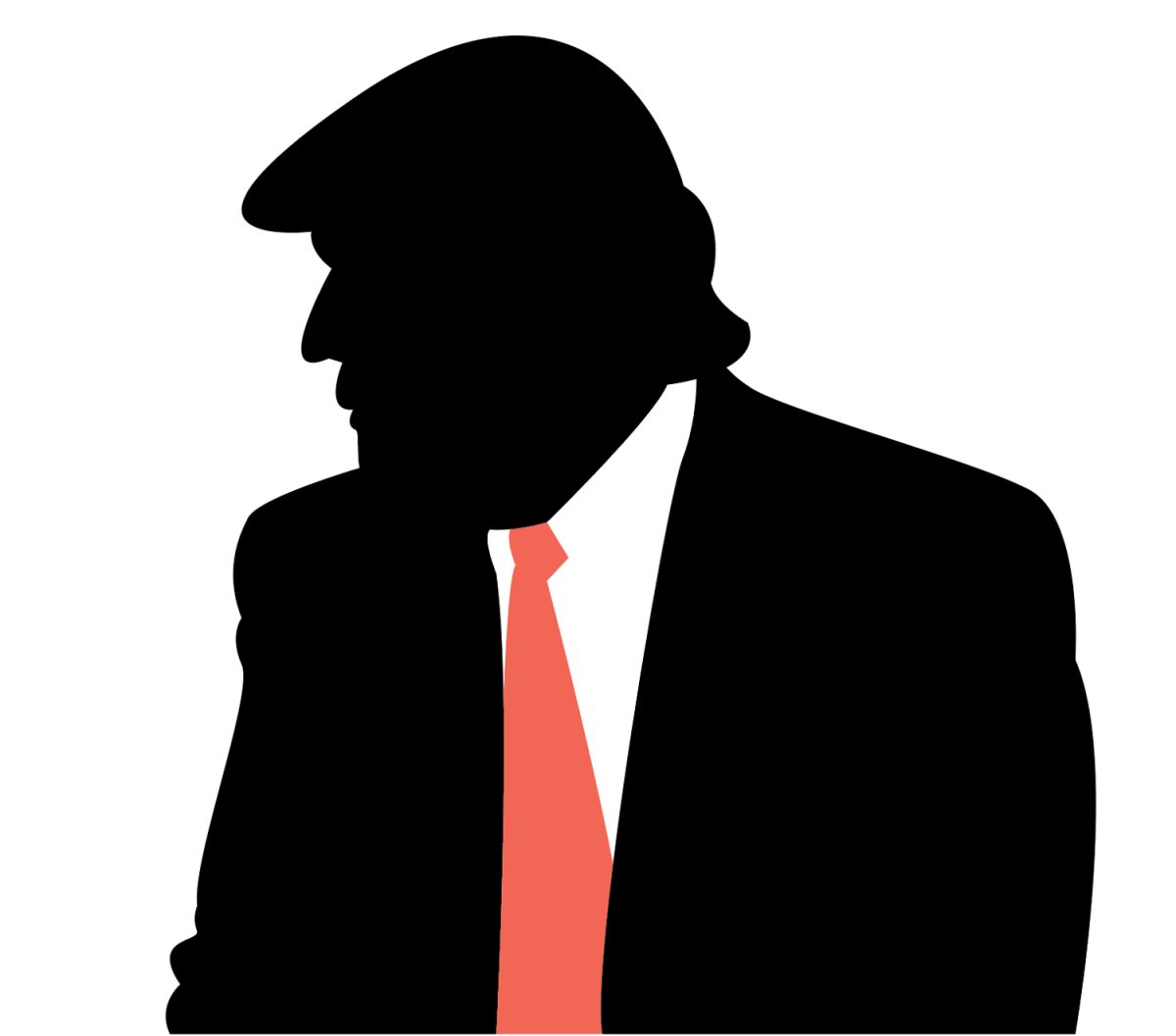On Nov. 6, households nationwide woke up to the news that Donald Trump won the 2024 presidential election. Citizens of the United States had mixed reactions: some rejoiced while others mourned. As 2025 approaches, so does Trump’s next presidency, leaving us with the question: Will Trump’s policies impact the UPrep community?
Education
In response to college campus protest about the war on Gaza, Trump expressed his plan to create an institution that he calls the American Academy.
“The American Academy will compete directly with the existing and very costly four-year university system,” Trump said. “Its mission will be to make a truly world-class education available to every American, free of charge.”
Analysis from the Education Data Initiative shows that the average cost of attending a four-year college is $108,584 over four years. A free institution that allows Americans to access education could help citizens who do not have the financial means to attend a 4-year university.
In addition, Donald Trump states that he wants to target the Federal Department of Education for elimination during his second term.
Wang hopes that Trump’s new education policies will bring a focus back to learning in American schools.
“I think there’s been less of a focus on academics, and I think part of that has gone to DEI programs,” Wang said. “A kid in Nebraska should be learning the exact same education system as a kid in California.”
While UPrep does not rely on federal funding, it is impacted by changes in policies that the Federal Department of Education requires. For example, the Department of Education requires private schools in Washington to have a school year of at least 180 days.
Senior Jack Webb believes that the Department of Education is a necessary resource for students across the state.
“If the vast majority of Americans are in public schools, then surely we should be providing for them with the Department of Education,” Webb said.
He also points out that the cut would likely not affect students at Uprep, but kids and public schools instead.
“I think it would just work out for people like us, but that’s not the ideal,” he said.
The Economy
Throughout the 2024 election, one word became a power tool for the Trump Campaign: economy. In a survey conducted in 2024 by Pew Research Center, approximately 81% of registered voters said that the economy would impact their vote.
Reports from the Associated Press and the nonpartisan Tax Foundation indicate that Trump intends to lower federal revenue corporate tax rates on the wealthiest Americans, and increase tariffs on foreign goods by 10-20%.
While many supporters point to his last term as an economic strongpoint for the country, senior Carly Katzman highlights the complexity of Trump’s statements.
“I feel like there are a lot of misconceptions with the economy because it’s very complicated,” Katzman said. “In reality, things like tariffs on imported goods would actually raise prices because the actual people of the United States have to pay for those tariffs, not foreign nations.”
An analysis done by the Tax Foundation, a nonpartisan organization, found that Trump’s tariff increases would result in lower economic outputs and incomes for households across the United States.
In a 2021 report by the United States Trade Representative, exports from Washington state supported an estimated 147,000 jobs. A rise in tariffs could mean a lower production of exports in Seattle’s port, meaning that jobs in that sector could dwindle.
Reproductive Rights
On Oct. 1, Trump posted on the social media site, Truth Social, that “Everyone knows I would not support a federal abortion ban, under any circumstances, and would veto it, because it is up to the states to decide based on the will of their voters.”
However, he has been unclear on whether his administration would restrict abortion pills, such as Misoprostol.
According to the Center for Reproductive Rights, only 21 out of 50 states, like Washington, protect abortion by state law. Sophomore Zoe Mirchandani says that abortion should be up to a woman and not the states.
“If I ever want to go to college now in a different state that doesn’t have abortion access, that’s something I have to think about,” Mirchandani said. “That should not be something that is dictating where I want to go to school.”

Immigration
In a 2016 study conducted by Pew Research Center, an estimated 140,000 undocumented immigrants live in the Seattle-Tacoma-Bellevue area. According to a Census Bureau 2020 Estimate, approximately 143,687 Seattle residents are foreign-born.
During a 2023 caucus speech in Iowa, Trump mentioned implementing ideological screening. This process determines whether people who immigrate to the United States have ideologies that are deemed unconstitutional.
“If you empathize with radical Islamic terrorists and extremists, you’re disqualified,” Trump said at a speech in Clive, Iowa, on Oct. 16, 2023.
Webb disagrees with Trump’s screening policy.
“I think that it’s kind of ironic that he’s trying to screen for constitutionality as someone who was in violation of the Constitution as a president,” Webb said.
In addition to ideological screening, Trump plans to end birthright citizenship. According to his website, Trump states that “…the future children of illegal aliens will not receive automatic U.S. citizenship.” His new policies on the border would impact not only illegal migration but immigration in general.
Foreign Policy
According to the nonpartisan, independent organization, Council on Foreign Relations, Trump has adopted an “America First” mentality when it comes to foreign relations. Trump has long stated his disdain for the United States’ partnership with the North Atlantic Treaty Organization (NATO), hoping to reassess the country’s involvement.
Regarding global conflict, Trump claims that he could end the wars in Ukraine and Russia quickly, but no plan has specifically been outlined. Similarly, Trump’s website states that his foreign policies would “stand with Israel and seek peace in the Middle East.”
“The idea that Trump could be good at foreign policy is just so baffling to me, ” Webb said. “Just because you meet with somebody doesn’t mean that suddenly, your diplomacy becomes instantly effective and the other side instantly respects you.
DEI
Another term of Donald Trump could mean the end of Diversity Equity and Inclusion (DEI) programs in government institutions. Trump called for the end of these programs in an executive order in 2020, which President Biden later revoked. The order stated that such programs should not be required due to the divisiveness that they create.
Ninth grader West Wang agrees that public DEI programs create division across the nation.
“I think DEI is rooted in being proud of your culture, and I think that’s important, but it does loosen our connection, that what truly brings us all together is that we’re American.”
In comparison, Katzman finds that Trump’s intention to get rid of DEI programs feels like a step back for the country; she ties this to Trump’s campaign slogan, “Make America Great Again.”
“The whole idea of Make America Great Again seems like it’s trying to undo everything that people have worked really hard to change to make America better for more people,” Katzman said. “I just don’t really see the point in undoing progress.”
Whether or not a person supports Donald Trump, Wang still believes that people need to give him a shot. “I think people have to realize, America picked Donald Trump for a reason,” Wang said. “I think we should give him the chance to lead.”


